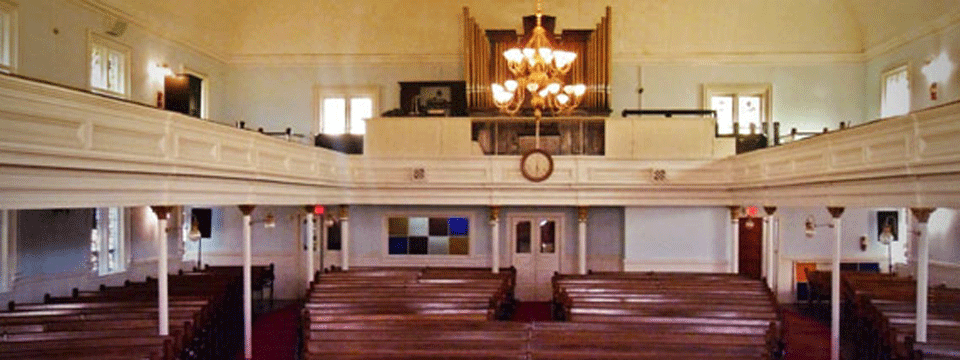
by Karen Kinnaird | Aug 25, 2014
“Now I lay me down to sleep, I pray the Lord my soul to keep. If I should die before I wake, I pray the Lord my soul to take.”
I recall praying this prayer at bedtime as a little girl but found it to be disturbing. What is the soul? According to this prayer, if we die, what exactly what would get taken? How many of us really understand what this mysterious soul is and how do we take care of it?
The recently released book Soul Keeping: Caring for The Most Important Part of You (Zondervan 2014) by John Ortberg addresses these every issues. Ortberg, an author and pastor with a degree in psychology weaves this study of the soul in with practical illustrations and humor. Much of his writing is based on the teachings of the late Dallas Willard, a brilliant American philosopher and “professor of the soul”, known for his writings on Christian spiritual formation.
Ortberg begins with a quote from Willard, “Our soul is like a stream of water, which gives strength, direction, and harmony to every other area of our life. When that stream is as it should be, we are constantly refreshed and exuberant in all we do, because our soul itself is then profusely rooted in vastness of God and His kingdom…” The stream is your soul and you are the keeper. That inner stream gives strength, direction and harmony to every area of life.
Ortberg makes the case that anxiety, depression and fear are symptoms of a soul that has lost touch with its source of life. An unhealthy soul experiences dis-integration. A healthy soul is integrated and demonstrates harmony between the will, mind, and body. One who is pre-occupied with unhealthy habits is one whose soul cries out in distress. One who lives a shallow spiritual life is one whose soul shrivels from neglect. Because the soul is the deepest expression of the person, the soul is the place of greatest pain. If our soul is unhealthy, we can’t help anyone.
We, and no one else, are responsible for our soul. Ortberg calls us to develop a well-cared-for soul by suggesting several tools. Here are a few:
- The soul needs a center. The private spiritual life where worship and confession are practiced is where values are selected and character is formed.
- The soul needs rest. Ortberg describes the person who is depleted and lists indicators of soul-fatigue. Hurry is the enemy of the soul. Our soul needs solitude with no agenda, no distraction, and no noise.
- The soul needs satisfaction. The soul craves to be secure, to be loved and to be significant. We find these only in God in a form that can satisfy us.
In addition to the book, a study guide and a six-session video is available for small group study. I look forward to taking a discipleship group through this study myself this fall. I definitely recommend Soul Keeping to those who seek to slow down, draw closer to God and go deeper with their spiritual life.

by Karen Kinnaird | Aug 13, 2014
Freedom. Liberty. Salvation. These are words we use frequently without even thinking. But there was a time when some preachers here in America were not permitted to say those words. This summer, I visited family in Savannah, Georgia. We had the privilege of taking a tour through the First African Baptist Church of Savannah (www.firstafricanbc.com). Organized in 1773 and constituted in 1777, this church is officially the oldest black church in North America. The congregation is still active today.
I was fascinated by the history of this body of believers and their church building. The beautiful brick building was built in 1859 by a majority enslaved congregation. One of the jobs assigned to the women was to carry the bricks from the Savannah River up to the church. They carried these bricks in long aprons on an incline up to a half mile in the hot, humid Savannah climate. The slaves were given permission to build the church but only in the dark evening hours after their other work was completed.
We sat in the pews in the balcony which are original to the church and made by slaves. On the outside of the pews are markings written in the African dialect known as Cursive Hebrew. No one has been able to fully translate the markings. Looking up. the ceiling is in the design of a Nine Patch Quilt which represented that the church was a safe house for slaves. The Underground Railroad used quilts with codes to signify safe houses, serve as maps, and inform people what to look out for on their travel.
Much of the money collected to purchase the land and construct the church building was donated from the savings that slaves were setting aside to purchase their freedom.
 Beneath the lower auditorium floor is another finished subfloor which is known as the Underground Railroad. Holes in the floor are in the shape of an Africa prayer symbol. It is a diamond with a cross in the middle. This symbol doubled as air holes for escaped slaves who were hiding under the floor. They would make their way to the tunnel system below the church to head north.
Beneath the lower auditorium floor is another finished subfloor which is known as the Underground Railroad. Holes in the floor are in the shape of an Africa prayer symbol. It is a diamond with a cross in the middle. This symbol doubled as air holes for escaped slaves who were hiding under the floor. They would make their way to the tunnel system below the church to head north.
On this trip, I was impacted by the sacrifice, dedication and fortitude of these believers. I was also reminded to appreciate my freedoms. We live in a free country. When our pastors preach they are free to use whatever words in the Bible they feel led by God to use. But our nation is becoming increasingly hostile to people of faith. Is our religious freedom slipping away from us? It benefits everyone to preserve religious freedom, not for just Christians but for all people, even those who don’t have a religion. The free expression of ideas is foundational to a healthy, progressive and free society. The preachers of the African Baptist Church were told not to use certain words because the slaves might think certain thoughts; thoughts that might result in action. Erosion of our freedoms should be unacceptable. Our country is changing. What will it take for us to keep the freedom we have? It will be a lot easier to fight to keep it than to fight to get it back once it is lost. Step up and speak up. Get involved in the political process of our state and nation. What will you do? What will it take?

by Karen Kinnaird | Jul 28, 2014
OUCH! “Sticks and stones may break my bones, but names will never hurt me.” Not true. If we are honest, harsh words and criticism do hurt when they are directed at us. Words hurt even more when directed at not only something we’ve done, but who we are. My husband and I have been in ministry for almost 30 years, and we have had some seasons of criticism. Sometimes I want to lash out in anger and defend myself. Other times I want to retreat and hide. Fortunately, there is a way to keep our peace and joy in the midst of criticism. There is a proper, Christ-like way to respond. Years ago, I heard a wonderful sermon by Charles Stanley on how to handle criticism. In my own words, here is some of his wise advice that has carried me through those times:
1. Listen attentively and carefully. Look the person in the eye. Pay close attention to what they are saying and the spirit in which they speak. Keep your cool.
2. Hear them out. Don’t say anything until they are finished talking. Then ask, “Is there anything else?” Don’t interrupt. Often the first issue addressed is not the real issue but a smoke screen for a deeper problem.
3. Respond by saying, “Thank you for bringing this to my attention. I will consider what you are saying”. That’s it! That’s all you have to say at this point. The natural response is to defend or attack. Don’t do it! I have found it helpful to immediately write down exactly what the person said. Because so many emotions are evoked in receiving criticism; there is a tendency to dwell on and rehearse what was said. In the process we may twist the words and even blow the situation out of portion. This is like pouring gasoline on a fire.
4. Spend time with God and ask, “Is this valid?” The criticism may be valid, partially valid or unfounded. Be honest with yourself. Take your time. You may need to spend an extended time before God. Deal with your emotions and don’t let them dictate your response. Talk to a trusted friend who will speak the truth. Guard yourself from gossiping or complaining about your critic in order to make yourself feel better. I found it helps to put myself in the place of the critic and try to understand where they are coming from. In other words, if I were them would I feel the same way?
5. If the concern is valid, take the steps to correct the situation. This is the proper time to go back to the person and make an apology. It’s difficult to admit we are wrong but don’t we want to know the truth so we can change? Ask God and the person involved for forgiveness. Appreciate the courage it took for that person to come to you. Perhaps an apology is in order to someone else as well? Take any steps needed to correct the situation and change to avoid problems in the future.
6. If the concern is not valid, let it go. Yes, let it go. Forgive the person. Pray for them. Be the bigger person. Don’t let the incident ruin you or stop you. Don’t let it permanently ruin your relationship for this grieves God’s spirit and can negatively affect whole groups of people.
7. Consider the situation an opportunity to grow in your Christian life. Allow God to use this to do a transforming work in your life.
Sticks and stones may break our bones, and names and words are painful, but we are accountable for our response. Proverbs 9 states, “Do not rebuke a mocker or he will hate you; rebuke a wise man and he will love you. Instruct a wise man and he will be wiser still; teach a righteous man and he will add to his learning.”

by Karen Kinnaird | Jul 21, 2014
“Miss Karen, you look like Mulan, but she had a small waist!” All I could do was laugh. I was teaching the missions class of my home church’s Vacation Bible School. I dressed like an Asian woman that day to teach the lesson. It’s interesting to get a glimpse of what is on children’s minds.
Summer is in full swing and along with it comes VBS, church camps and a variety of other opportunities to share the gospel with children. But what’s the best way to do that?
- Present the gospel clearly and thoroughly but on the child’s level. Any gospel presentation should include the following:
- God loves you
- You have sinned
- Jesus died and came back from the dead so you can be forgiven
- You must turn from your sin and ask God to forgive you
- You must ask Jesus to come into your life to be your Lord
- Avoid or define “churchy” language. Children think literally and many children today are not familiar with biblical terms. While children need to learn the language of the Bible and the church, the goal is to help them understand the Christian life. Here are some examples and explanations:
- Saved– When you have asked God to forgive your sin and asked Jesus into your life as Savior and Lord
- Born Again-being born into God’s family
- Sin-disobeying God in thought or action
- Repent-To turn from your sin and choose to follow Jesus
- Ask open-ended questions to find out what the child is thinking and test the child’s understanding. Never assume anything. Determine the spiritual condition of a child by asking questions like:
- What made you start thinking about becoming a Christian?
- Are you already a Christian, still thinking about it or not really sure? Tell me about that.
- What do you need to do to get to heaven?
- Who is Jesus? What did He do for us?
- If your friend asked you how to become a Christian what would you say?
- Guide a child to an appropriate commitment. In general, children make 3 type of commitments:
- Step toward God- This is for the child who is not yet ready to make a commitment. Children should never be pressured or made to feel like their decision is not important. Pray for the child. Encourage them to go to Sunday School and church. Encourage them to pray and read their Bible and continue to ask questions.
- Profession of Faith-This is for the child who is ready to make a commitment. There is an understanding of sin and the gospel. The child prays to receive Christ.
- Assurance of Salvation- Some children do not understand a previous commitment and made a premature decision. Some had a genuine salvation experience but may have questions or doubts. Ask questions to test a child’s understanding. For instance: When did you realize you were a sinner? Has there been a time you asked Jesus to forgive you and come into your life?
- Follow-up. Children should be in church and Sunday School regularly. They need to be taught to pray and read their Bibles. Resources such as “I am a Christian Now” are excellent for parents and children to work through together immediately after a commitment has been made.
One of the best resources I have read on this topic is Art Murphy’s The Faith of a Child. In this book, Art writes that God is the obstetrician and we are the pediatrician. God gives the birth and expects us to provide the spiritual health. Children’s questions are like spiritual kicks in the womb. The goal is a healthy, full-term spiritual birth. With wisdom, discernment and love, let’s reach our next generation for Christ.

by Karen Kinnaird | Jul 14, 2014
 “I’m in over my head again.” I thought this several times as I taught a Discipleship Institute class at my home church on the book, Renovation of the Heart-Putting on the Character of Christ by Dr. Dallas Willard. Thinking this book would be better suited to a class of seminary students, I normally would never have picked it up, but my class members and I accepted the challenge. As a result, we were introduced to a deeper level of thinking; we were also challenged with a deeper level of commitment in our individual Christian walks.
“I’m in over my head again.” I thought this several times as I taught a Discipleship Institute class at my home church on the book, Renovation of the Heart-Putting on the Character of Christ by Dr. Dallas Willard. Thinking this book would be better suited to a class of seminary students, I normally would never have picked it up, but my class members and I accepted the challenge. As a result, we were introduced to a deeper level of thinking; we were also challenged with a deeper level of commitment in our individual Christian walks.
Dallas Willard, a humble American philosopher, professor and author specializing in Christian spiritual formation, wrote The Divine Conspiracy, The Spirit of the Disciplines, Hearing God and others. He has earned the title “America’s Answer to C.S. Lewis.” Renovation of the Heart won Christianity Today’s 2003 Book Award for books on Spirituality.
The book is a theoretical and practical guide to discipleship and Christian transformation in more ways than one. Willard describes Christian transformation as a Spirit-driven process that “brings every element in our being, working from inside out, into harmony with the will of God or the kingdom of God.” In this transformation, we become apprentices of Jesus.
Often times, people are confused in understanding the difference between the heart, will, spirit and soul. Willard describes in great detail the six basic aspects in our lives as human beings: thought, feeling, choice, body, social context and soul. A chapter is dedicated to understanding the transformation of each aspect.
Dr. Willard explains that the ideal end of transformation is when “all of the essential parts of the human self are effectively organized around God, as they are restored and sustained by him.” And the “Spiritual transformation in Christ is the process leading to that ideal end, and its result is to love God with all of the heart, soul, mind, and strength, and of the neighbor as oneself.” Willard explains the general pattern of personal transformation as a systematic process that we have responsibility for as intentional apprentices of Jesus.
One of my favorite chapters in the book was the last chapter on “Spiritual Formation in the Local Congregation.” He believes that spiritual formation should be “the exclusive primary goal of the local congregation.” Churches should be functioning as spiritual hospitals with people in various stages of recovery. Unfortunately, what characterizes many of our congregations are distractions and issues not even addressed in the New Testament. This is a strategy of Satan. Willard states very clearly that God’s plan for the local congregation is to make disciples – apprentices of Jesus.
Come to be known as “Dallas-isms”, here are a few of my favorite sayings of his:
“Those with a well-kept heart are persons who are prepared for and capable of responding to the situations in life in ways that are good and right.”
“The mature children of light are like their master. They know God and his Word, they think straight, and they live in truth, because every essential dimension of their being has been transformed to serve God: heart, soul, mind, and strength.”
“Discipleship is learning from Him how to lead my life as He were to lead my life if He were I.”
For all those who desire to be apprentices of Jesus, Renovation of the Heart will help you find spiritual treasures which will help you live fully in the kingdom of God. And in those times when we think we may be in over our heads, it may be our biggest opportunity for growth.






